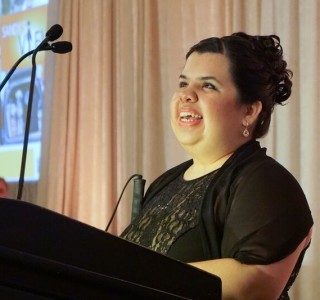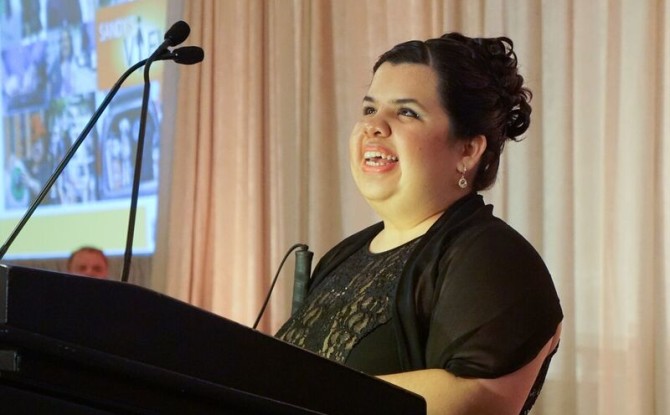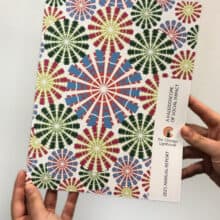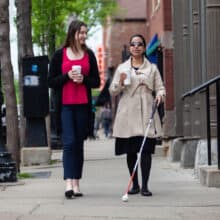
Tips for Public Speaking As A Person with Vision Loss
June 9, 2016
Last Friday, I had the pleasure of addressing the audience at The Chicago Lighthouse’s annual Seeing What’s Possible gala. After sharing a little about myself and kicking off our live auction, I received many compliments on my presentation from the guests. One guest pointed out that because I had my speech written in Braille, I could look directly at the audience. I have gotten this comment many times, and it makes perfect sense. After all, I don’t have to look at my notes when speaking, so I can focus on maintaining eye contact with the audience.
This got me and my colleagues thinking about the differences and similarities in public speaking as a person with vision loss. While it’s true that not having sight spares me from seeing the audience, I get just as nervous about being in front of large crowds as the next person. On the other hand, I have enjoyed public speaking since I was a child, so it is something I’m fairly comfortable doing. These are just some tips I have found helpful and learned along the way. As you will notice, they are helpful to people with and without sight.
- Know your subject matter. The more you know about the topic you will address, the more confident you will sound and look.
- Know your audience and plan your speech accordingly. During last week’s gala, the audience was familiar with the work we do at The Lighthouse, so my speech was focused on my personal story. Meanwhile, when my presentation is at a school or other organization, I talk more about what The Lighthouse does and how it helps people.
- Write your speech in whatever format you feel comfortable. Whether writing the entire speech or making note cards in Braille or large print, use something you are comfortable reading. If assistive technology is your preferred method, make sure your device is fully charged and ready to go before your presentation.
- Memorize your speech. You should not memorize it word for word, but it is always a good idea to review it before hand as many times as possible until you feel comfortable. It might also help to record while practicing so you can play it back later and listen to how you sound. The written speech and notes should only serve as cues during your presentation.
- Good posture, eye contact and over all body language are just as important for someone with vision loss to use during public speaking events. Although individuals who are totally blind might not be able to see the audience, it is still important to look in their direction.
For more helpful tips on successful public speaking as a person who is blind or visually impaired, check out this post from the American Foundation for the Blind. Most of us will inevitably be asked to speak in front of a group of people, and it can be one of the most nerve-racking experiences in our careers. What other tips or suggestions do you have about public speaking for individuals with vision loss?






